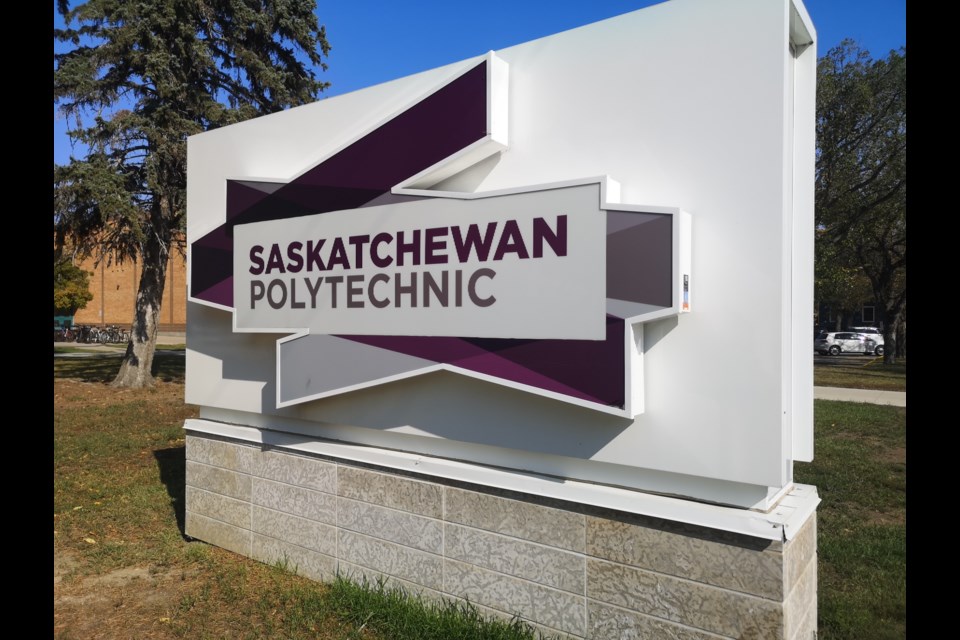In collaboration with Saskatchewan-based business Prairie Clean Energy, Saskatchewan Polytech will develop a "living lab" pilot operation at an agricultural site near Moose Jaw to serve as a testing ground for the viability of using prairie biomass to generate industrial heat.
The project will draw on a $1.1 million grant that Prairie Clean Energy received from the Mining Innovation Commercialization Accelerator (MICA) Network for its greenhouse gas (GHG) emissions reduction project.
The project targets the potash industry, aiming to use locally produced agricultural waste in the form of flax straw to generate low carbon bioheat, thus reducing the amount of GHG produced by mine sites.
Prairie Clean Energy's partnership will be with the Sustainability-Led Integrated Centres of Excellence (SLICE) at Saskatchewan Polytechnic. The collaboration includes the establishment of a living lab at Moose Jaw campus, free micro-credentials, and the development of an online Geographic Information System (GIS) platform to trace and track the source of biomass used for bioheat generation.
“This project aligns perfectly with SLICE’s focus on the circular economy, which prioritizes sustainability and waste reduction,” said Dr. Robin Smith, SLICE director.
“Agricultural waste like flax straw would normally be burned in fields. Processing flax straw into low-carbon pellets for biomass boilers exemplifies principles of the circular economy: reusing, recycling, and upcycling of materials and resources to minimize waste and promote sustainability.”
Dr. Smith gave credit to Bryan Sarauer, a program head in Moose Jaw, for his pivotal role in initiating the project.
“(Bryan Sarauer's) innovative idea to heat one of the buildings for the Agriculture and Food Production program has now blossomed into a demonstration site, new training opportunities and a cutting-edge GIS platform. This success story highlights the benefits of applied research at Sask Polytech and the power of collaboration and sharing ideas,” Smith said.
“We are transforming the challenge of managing straw waste for flax growers in Saskatchewan into an alternative low-carbon heat solution for the potash industry. This industry, requiring substantial heat for its operations, currently relies on natural gas as its primary heat source,” said Mark Cooper, CEO of Prairie Clean Energy.
“This project not only demonstrates a great example of cross-sector collaboration between agriculture, energy, and mining industries, but also supports the potash industry in Saskatchewan to meet their sustainability goals.”
The living lab pilot to be developed by the Sask Polytech Moose Jaw campus will include a demonstration biomass boiler system, which will be purchased and installed in 2024 and used to heat an equipment storage and teaching space for the Agriculture and Food Production program.
The primary objective of this initiative is to assist Saskatchewan's mining sector in adopting biomass (specifically, pelletized flax straw) as a sustainable heating source for large buildings. It aims to provide a demonstration of biomass boiler operation and establish a platform for educational and learning experiences within the industry.
In preparation for the clean energy future, Sask Polytech is offering four new, free micro-credentials in partnership with Quick Train Canada and Canadian Colleges for a Resilient Recovery (C2R2). These micro-credentials focus on biomass production, handling, storage, and supply chain distribution.
To secure the flax straw needed to make pellets to generate energy, Sask Polytech is developing an online GIS platform. This GIS map will trace and track the location of flax straw suppliers in Saskatchewan, including their size and biomass yield and identify optimal distribution routes.
More details can be found at saskpolytech.ca/news.
In response to some providers blocking access to Canadian news on their platforms, our website, MooseJawToday.com will continue to be your source for hyper-local Moose Jaw news. Bookmark MooseJawToday.com and sign up for our free online newsletter to read the latest local developments.




